However, rapid deforestation, fueled mainly by agricultural expansion and industrial pressures, threatens both biodiversity and the well-being of local communities who depend on these forests for their livelihoods and cultural heritage. Data show the country has lost over 2.2 million hectares of tree cover since 2001.
The challenge and FSC's role
Deforestation not only diminishes vital wildlife habitat but also erodes the environmental and economic stability of local populations. The Forest Stewardship Council (FSC) has been central to advancing responsible management solutions that balance economic needs with ecological preservation. In Cameroon, PALLISCO Company (LLC) has been using FSC principles and criteria as part of its operations since 2008 to reinforce its environmental, social, and economic performance in forest management.
PALLISCO: from timber exporter to steward of sustainability
Established in 1972, PALLISCO’s initial aim was to supply logs and sawn timber to clients in Europe. Over time, with rising international demand for certified timber, particularly driven by European import regulations (such as the EU Timber Regulation), PALLISCO turned to FSC to meet evolving market and sustainability requirements.
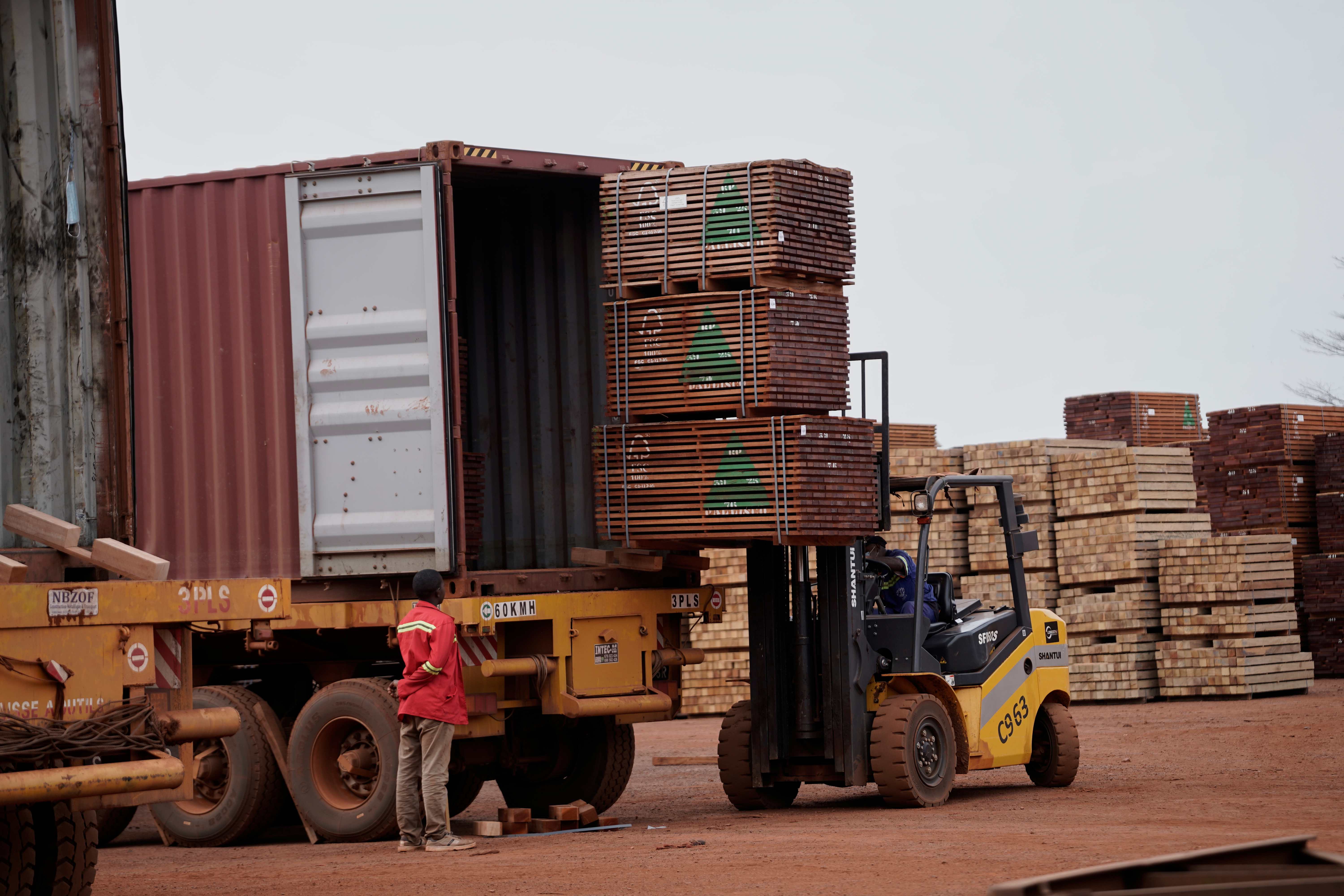
According to Fousséni FETEKE, Director of Operations at PALLISCO, "we felt the need to guarantee client trust in an international context marked by a growing interest in timber from well-managed forests. This was our first key aspect." After three years of adapting to FSC standards, PALLISCO became FSC-certified in 2008: "We see FSC certification as the crowning achievement of our commitment and, above all, our efforts in terms of sustainable management on an economic, social, and environmental level."
PALLISCO now directly employs over 510 people, managing 388,949 hectares of FSC-certified forest in Mindourou, Eastern Cameroon, with both its sites (PALLISCO and Centre Industriel et Forestier de Mindourou - CIFM) also FSC Chain-of-Custody certified.
Operationalizing sustainability and traceability
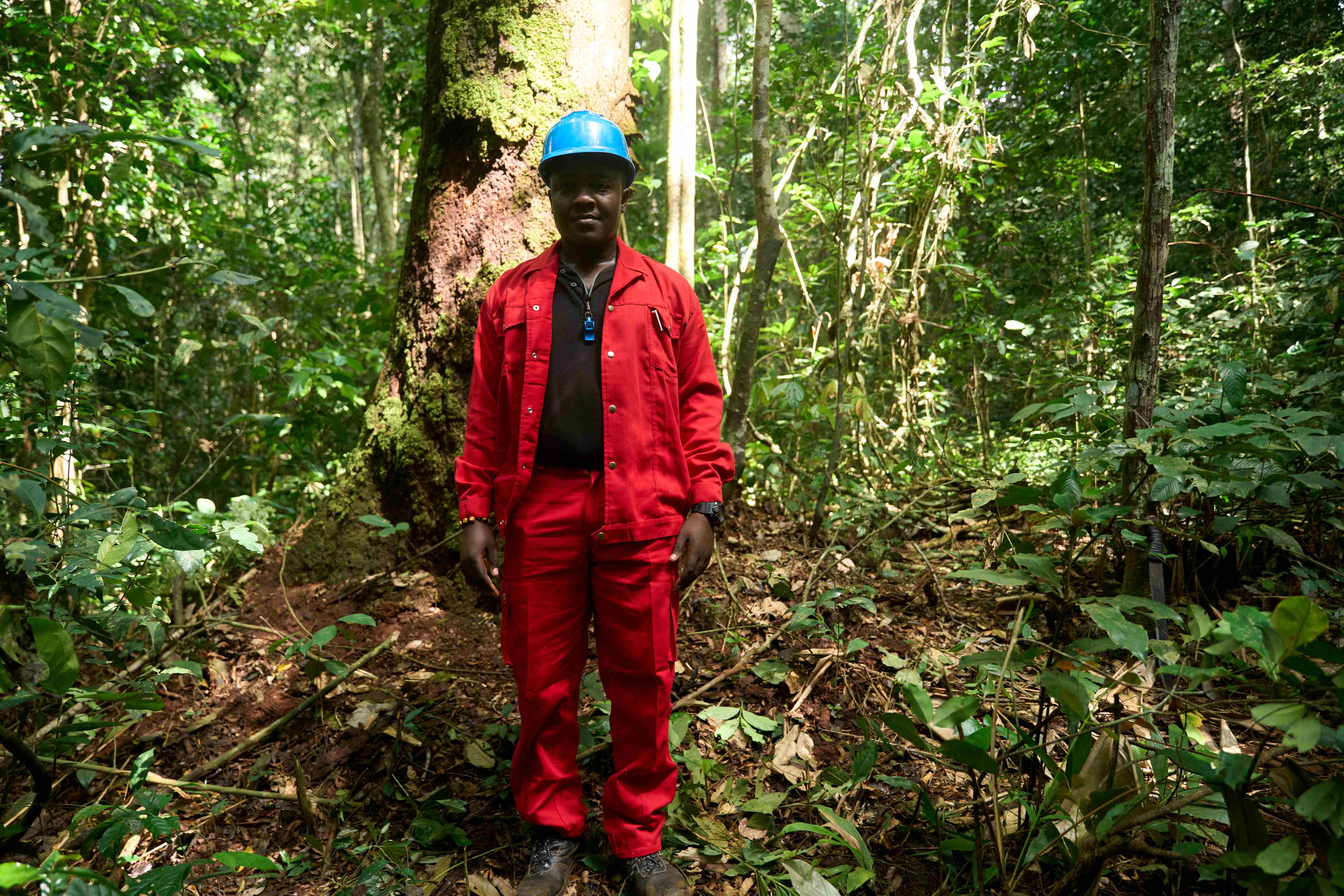 According to Christian Zuh, Inventory, Planning, Monitoring, and Evaluation Manager at PALLISCO, the company’s approach to forest management is rooted in continuous monitoring and evaluation. This strategy is inspired by FSC Principle 8, which requires certified organizations to demonstrate that they are systematically tracking progress toward their management objectives, evaluating the impacts of their activities, and assessing the overall condition of the forest ecosystem. "We conduct monitoring and evaluation activities that allow us to assess the quality of all our operations, from felling planning to final consumption. This helps us ensure that our work complies with current standards."
According to Christian Zuh, Inventory, Planning, Monitoring, and Evaluation Manager at PALLISCO, the company’s approach to forest management is rooted in continuous monitoring and evaluation. This strategy is inspired by FSC Principle 8, which requires certified organizations to demonstrate that they are systematically tracking progress toward their management objectives, evaluating the impacts of their activities, and assessing the overall condition of the forest ecosystem. "We conduct monitoring and evaluation activities that allow us to assess the quality of all our operations, from felling planning to final consumption. This helps us ensure that our work complies with current standards."
Each tree is uniquely identified, tracked from standing timber through felling to processing, aided by an internal digital traceability system. "Having grown up around the forest, I've always understood its importance in our daily lives. For me, destroying the forest is destroying life. That's why I am committed to preserving it, so that future generations can benefit from it as we do today," Zuh explains.
Reduced-impact logging techniques are a central part of operator training to minimize environmental damage, while rigorous post-harvest regeneration, both natural and assisted through reforestation, helps preserve ecosystem health. While the law permits Pallisco to harvest up to 3 trees per hectare every 25 years, PALLISCO harvests between 0.5 and 1 tree per hectare. "We train our operators in reduced-impact logging techniques, which minimizes damage to the forest structure. After harvesting, we rely on natural regeneration, but we also support this regeneration through reforestation efforts," says Zuh.
Restoration, regeneration, and community benefits
PALLISCO invests part of its profits into the restoration of degraded forests, protecting seed trees (those above the felling diameter) to ensure long-term regeneration. According to FETEKE, "we have put in place a management plan and have developed ways to maintain stable populations of about ten emblematic species that have been sampled."
In 2024, a University of Utrecht study revealed compelling evidence that forests certified by the Forest Stewardship Council® (FSC®) in the Congo Basin harbour a higher abundance of larger mammals and critically endangered species, such as gorillas and elephants, compared to non-FSC certified forests. PALLISCO issues an annual report that tracks and showcases the state of biodiversity in its FSC-certified management units for both flora and fauna species.
FETEKE adds, "we are also working to reduce the direct impacts of our activities on wildlife through the preservation and proper management of High Conservation Value (HCV) areas, particularly wildlife habitats. In addition, we aim to minimize indirect impacts of logging on wildlife by implementing protective measures, such as controlling access to our forest concessions and ensuring that operations are carried out responsibly." To verify the impacts of its activities on the ecosystem, PALLISCO has been working on an FSC Ecosystems Services Claim since 2023, which will allow a third party to verify via an audit that will quantify the true value of their forest efforts.
The benefits extend beyond ecology. Over the past 15 years, PALLISCO-CIFM has invested a substantial 466,790,195 FCFA (approximately $754,000 USD) in various social projects across the local councils of Lomié, Messok, and Mindourou.
In education, PALLISCO-CIFM has funded the construction of 34 new classrooms and the renovation of 11 existing ones, alongside providing teaching materials, books, and school benches. The company has built 9 complete houses and 35 community shelters. Investments also include the development or rehabilitation of 4 water points and significant contributions to health initiatives such as establishing health huts, donating medical equipment and medicines, and conducting health campaigns. Since 2000, PALLISCO has consistently paid over 30.5 billion FCFA in Annual Forest Royalties (RFA), with a significant portion of this funding channeled into local municipal budgets to support further development initiatives.
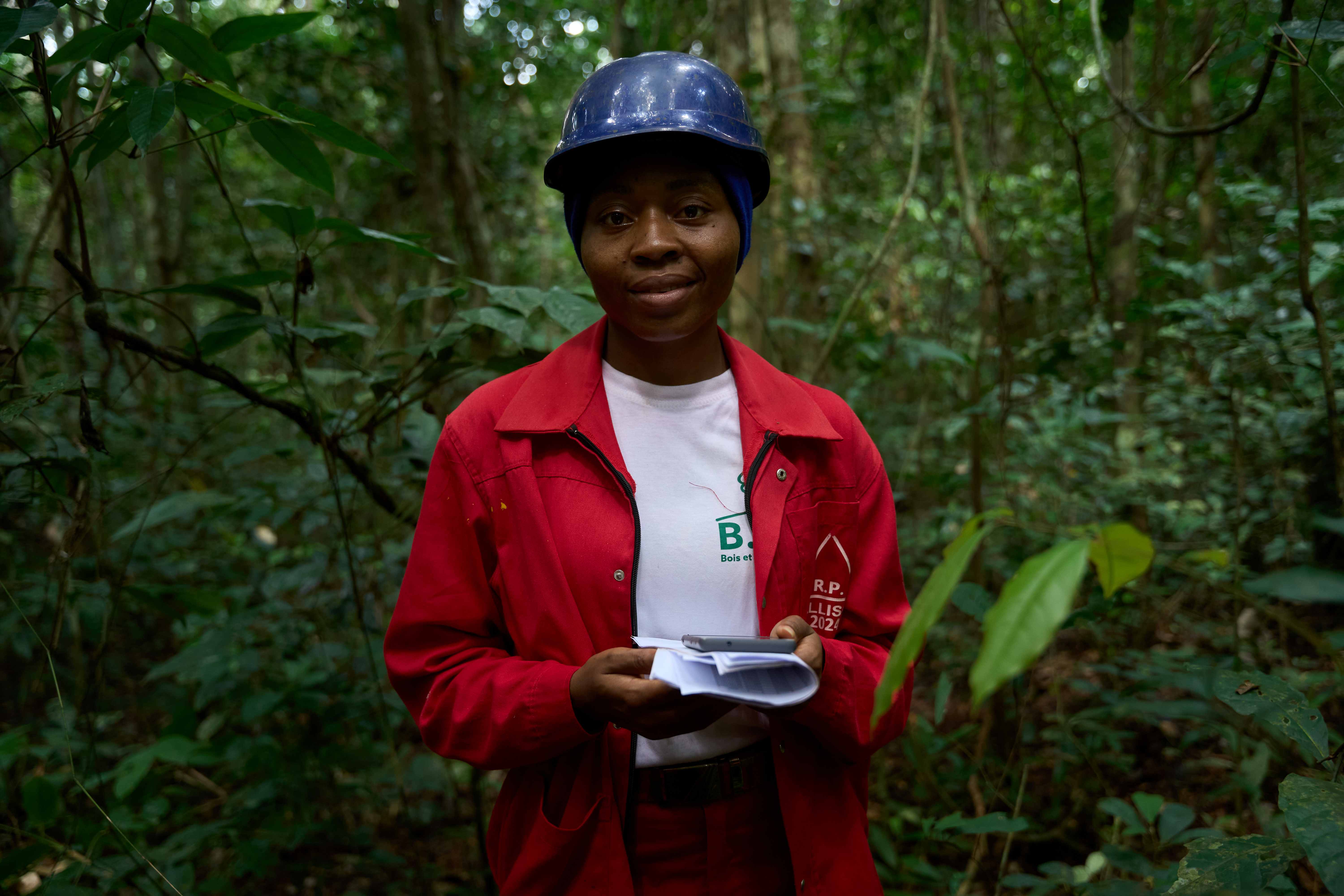
As His Majesty Fredy DJATTO ZOA, Chief of Mindourou village, says, FSC certification helps PALLISCO foster tangible local development. "The standard of living in our village has significantly increased. This is largely due to the recruitment policies implemented through the Locally Based Forest Committees (CPF), which promote local employment. PALLISCO builds schools, maintains roads, and prioritizes local recruitment. All employment contracts go through the village chief, helping organize things and reduce the unemployment rate."
In education, PALLISCO has equipped the Mindourou technical high school and funded boreholes, while CPF projects—such as solar kit distribution and infrastructure improvements—are validated locally, strengthening community participation.
Empowering local entrepreneurship
PALLISCO’s impact also includes supporting local entrepreneurship. The local group, Société Coopérative Simplifiée des Charbonniers de Dja (Mindourou Charcoal Makers' Cooperative), is now using certified wood waste to create sustainable charcoal. As Animo Serge Eric recounts, a wood waste cooperative emerged from community collaboration: "PALLISCO, being a certified company, could only deal with an organized group. That's how the idea of creating a cooperative was born." Today, the cooperative comprises 22 members, providing income generation, supporting businesses, and broadening market opportunities for locals. Collaborations with partners such as the German Development Agency (GIZ) Cameroon, the Ministry of Agriculture and Rural Development (MINADER) Cameroon, and the local council have catalyzed legalization, technical support, and access to local markets.
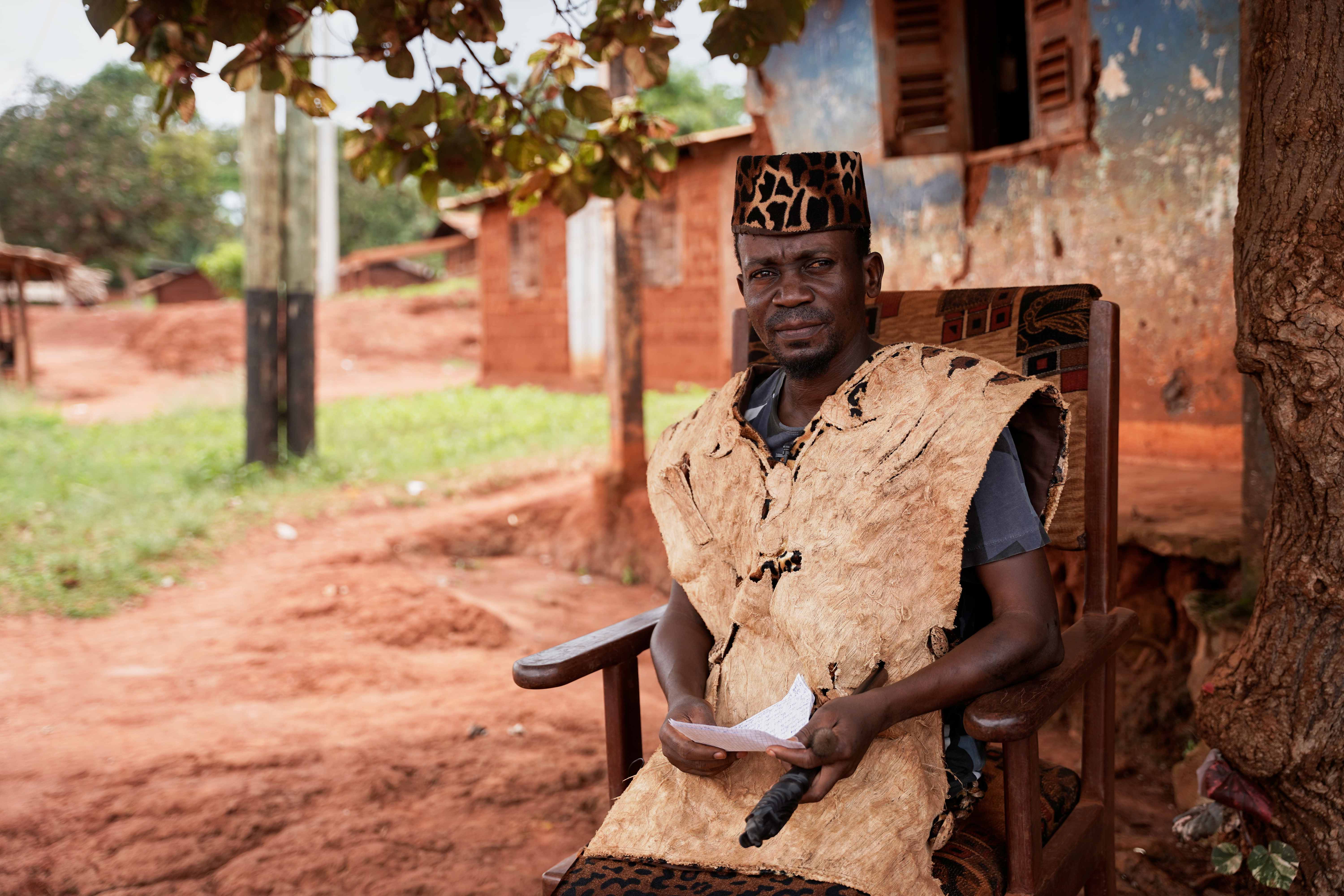
Research and reforestation: future-proofing the forest
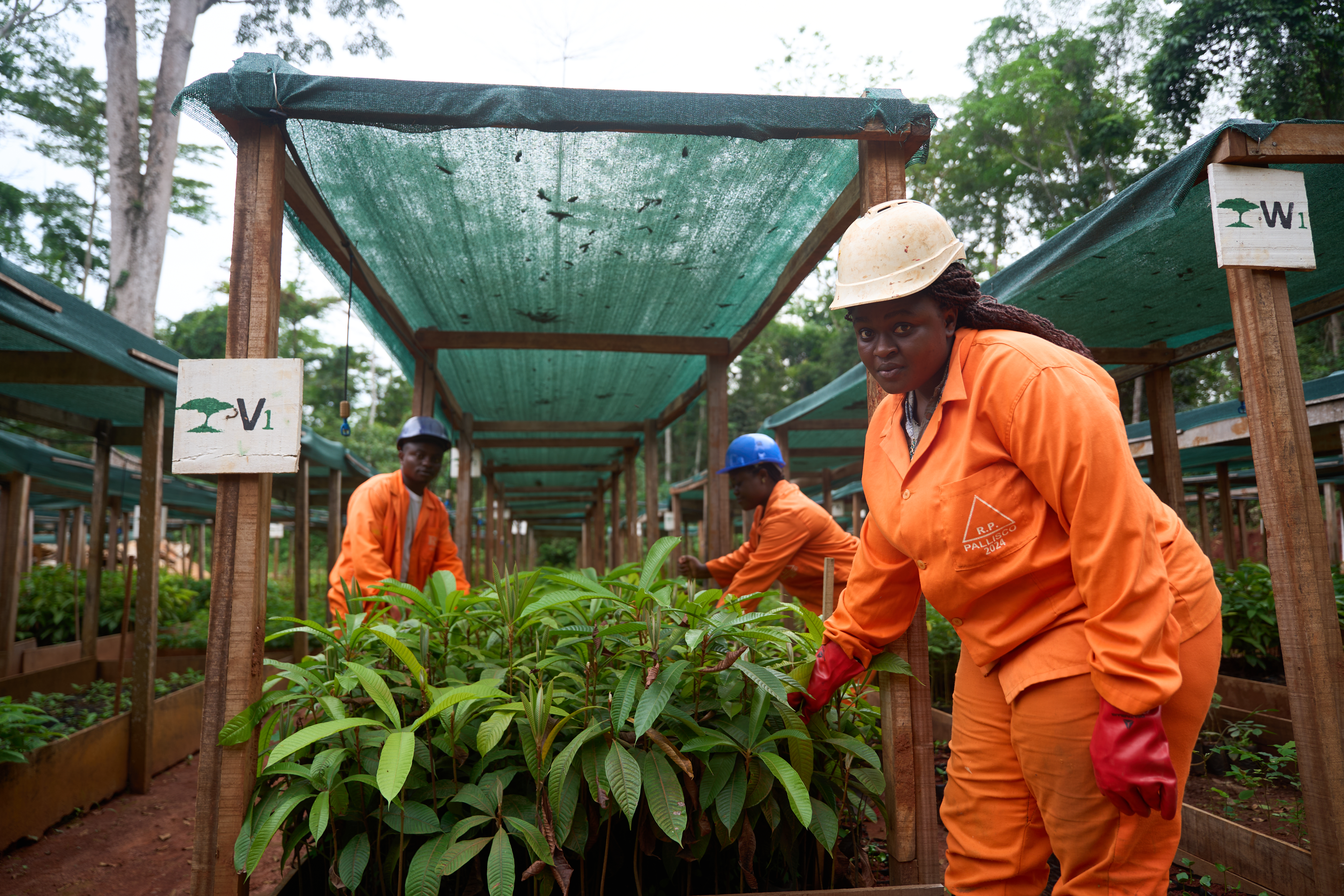 According to researcher Marthe Whitlie MONDA, PALLISCO maintains two main nurseries (Mindourou and Makalaya) holding approximately 69,000 seedlings, including commercial, high conservation value, prohibited, and non-timber species. Treated organically and irrigated via an upgraded automatic system, seedlings are transplanted for reforestation in degraded or logged plots. "Once the seedlings are ready, they are transferred to the forest for reforestation. At this stage, over 20 people are mobilized... Thanks to the UFA project, we have already planted over 30,000 seedlings," says MONDA.
According to researcher Marthe Whitlie MONDA, PALLISCO maintains two main nurseries (Mindourou and Makalaya) holding approximately 69,000 seedlings, including commercial, high conservation value, prohibited, and non-timber species. Treated organically and irrigated via an upgraded automatic system, seedlings are transplanted for reforestation in degraded or logged plots. "Once the seedlings are ready, they are transferred to the forest for reforestation. At this stage, over 20 people are mobilized... Thanks to the UFA project, we have already planted over 30,000 seedlings," says MONDA.
Marthe’s personal commitment echoes through her work: "Getting up every morning to contribute to reforestation is for me a concrete way to protect the environment and prepare a sustainable future for future generations. Preserving forests is essential, as they are the lungs of the planet."
PALLISCO’s experience shows that FSC certification is more than compliance. It is a framework for integrating economic, ecological, and social goals. Prof. Roger Ngoufo states that FSC means sustainability. "And sustainability also implies economic profitability, as well as transformation that brings added value. This helps strengthen local employment and maintain ecological values."
Through rigorous management, traceability, investment in regeneration, and deep community collaboration, FSC-certified operations in Cameroon offer a model for safeguarding both forests and livelihoods, now and for the generations to come.